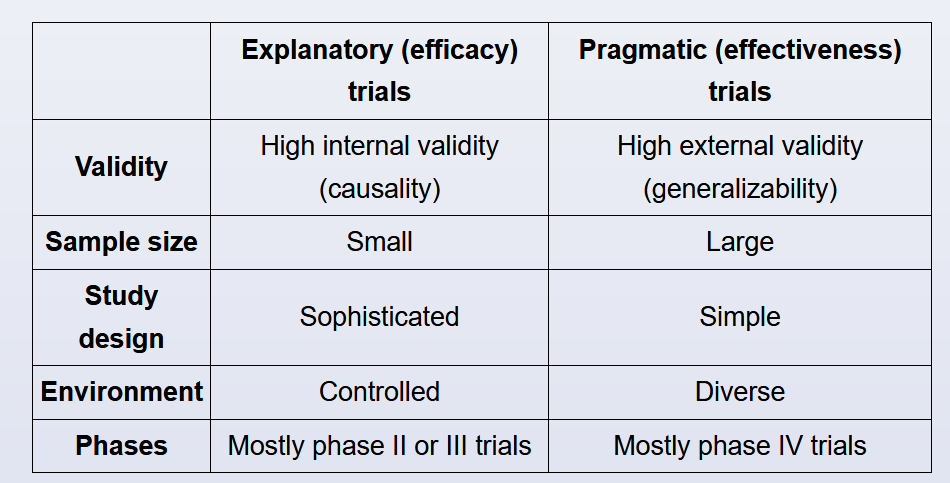explanatory vs pragmatic trials
- related: Biostats

Clinical trials can be classified into 2 broad categories:
-
Explanatory trials are designed to test the efficacy of interventions under optimal and controlled situations.
-
Pragmatic trials are designed to evaluate the effectiveness of interventions in real-life (everyday) clinical practice conditions.
Pragmatic trials produce results that can be generalized and applied to the population on which the intervention was meant to be used. By contrast, results from explanatory trials often fail to be generalizable to the broader population.
In this example, physicians want to ensure the study population is as similar as possible to the population on which the intervention is meant to be used (ie, range of disease severity, comorbidities, age, sex, and social and ethnic diversity). Therefore, the proposed study is a pragmatic trial aimed at evaluating the effectiveness (as opposed to the efficacy) of treatment for patients with evidence of active Crohn disease.
Exploratory trials should be conducted early in phase I trials and involve limited human exposure. These types of design have no therapeutic or diagnostic intent and are not meant to examine the maximum tolerated dose. The aim is usually to prove a concept or to select a compound for full development, among many other possibilities.